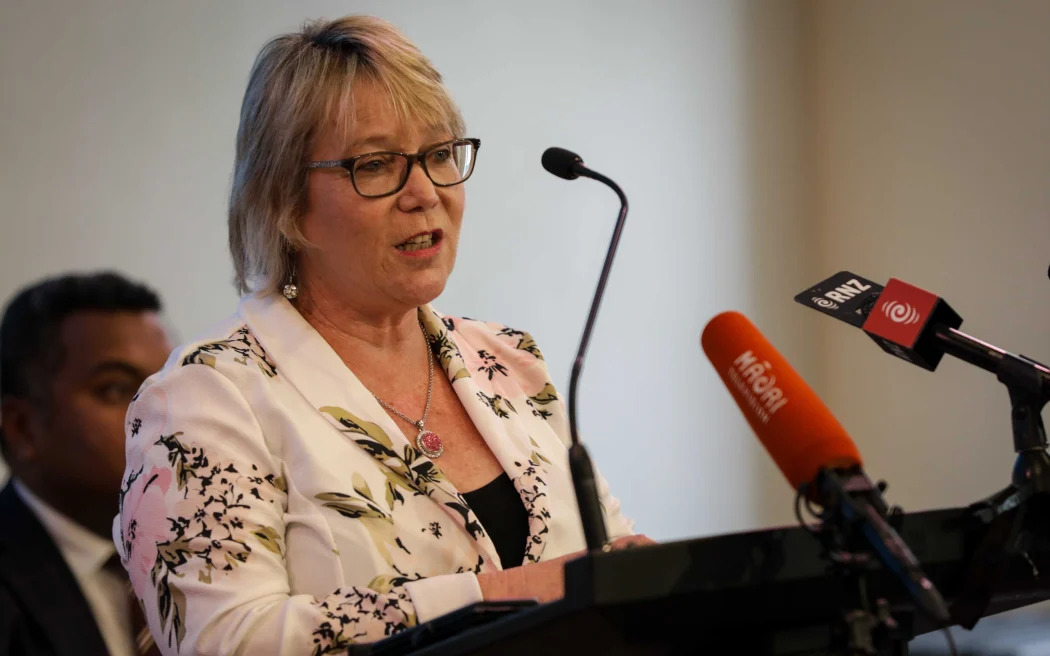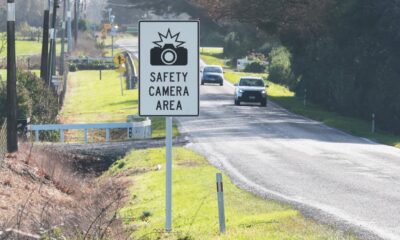Politics
Association Urges Government to Secure Funding for Dementia Care

The chief executive of Alzheimer’s New Zealand, Tracey Martin, has called on the government to ensure continued funding for dementia support services. Martin emphasized that losing these services, even temporarily, would have detrimental effects on the healthcare system. She stated, “Ultimately, that will fall back onto our hospital system, that will fall back onto other services like police and search and rescue.”
Alzheimers Otago, a local branch of the organization, plays a crucial role in providing care and support to individuals with dementia and their families. Martin highlighted the pressing need for financial backing, saying, “I will guarantee you, it is not very much money that Alzheimers Otago requires to keep delivering the supports that they’re currently delivering.”
Urgent Need for Continued Support
Martin has urged the government to maintain funding for groups like Alzheimers Otago, at least in the short term. This call comes as the government seeks to redesign the aged-care funding model through a ministerial advisory group. Martin pointed out that the focus should be on supporting individuals to remain at home for as long as possible.
“This is about Alzheimers New Zealand and their branches all across New Zealand being resourced to be able to care for the care partners, who are looking after the individual with dementia,” she noted. The lack of support has created distress for caregivers who struggle to provide adequate care on their own.
Martin warned that as dementia progresses, some individuals may become unsafe, leading to greater challenges for their families and communities. “Downstream, as the disease itself progresses, there is a percentage of those New Zealanders who will become violent or who will become unsafe for themselves,” she explained.
Facing an Increasing Demand
The need for reform in dementia care is becoming increasingly urgent. With New Zealand’s population aging rapidly, the demand for residential care is expected to rise significantly. Martin pointed out that the number of people experiencing early-onset dementia is also increasing.
“People have always assumed that dementia is just going to affect you when you get old,” she said. “We’re seeing more and more happening under the age of 65, so more and more of these services will be needed in the community for younger and younger people.”
Martin emphasized that the current system is not adequately prepared to support younger individuals diagnosed with dementia. “The system’s just not set up for younger individuals – people in their 50s, who get dementia,” she added.
The Seniors Minister Casey Costello has been approached for comment regarding the funding situation, and the response is eagerly anticipated by those advocating for dementia care in New Zealand. As the population continues to age, the call for sustainable support for dementia care becomes increasingly vital to ensure that both patients and caregivers receive the necessary assistance.
-

 Top Stories1 month ago
Top Stories1 month agoCommunity Mourns Teens Lost in Mount Maunganui Landslide
-

 Entertainment6 months ago
Entertainment6 months agoTributes Pour In for Lachlan Rofe, Reality Star, Dead at 47
-

 World3 months ago
World3 months agoPrivate Funeral Held for Dean Field and His Three Children
-

 Top Stories3 months ago
Top Stories3 months agoFuneral Planned for Field Siblings After Tragic House Fire
-

 Sports6 months ago
Sports6 months agoNetball New Zealand Stands Down Dame Noeline Taurua for Series
-

 Entertainment1 month ago
Entertainment1 month agoJulian Dennison Ties the Knot with Christian Baledrokadroka in New Zealand
-

 Entertainment5 months ago
Entertainment5 months agoNew ‘Maverick’ Chaser Joins Beat the Chasers Season Finale
-

 Sports6 months ago
Sports6 months agoSilver Ferns Legend Laura Langman Criticizes Team’s Attitude
-

 Sports4 months ago
Sports4 months agoEli Katoa Rushed to Hospital After Sideline Incident During Match
-

 Sports4 months ago
Sports4 months agoAll Blacks Star Damian McKenzie and Partner Announce Baby News
-

 Sports3 months ago
Sports3 months agoNathan Williamson’s Condition Improves Following Race Fall
-

 Politics5 months ago
Politics5 months agoNetball NZ Calls for Respect Amid Dame Taurua’s Standoff


















